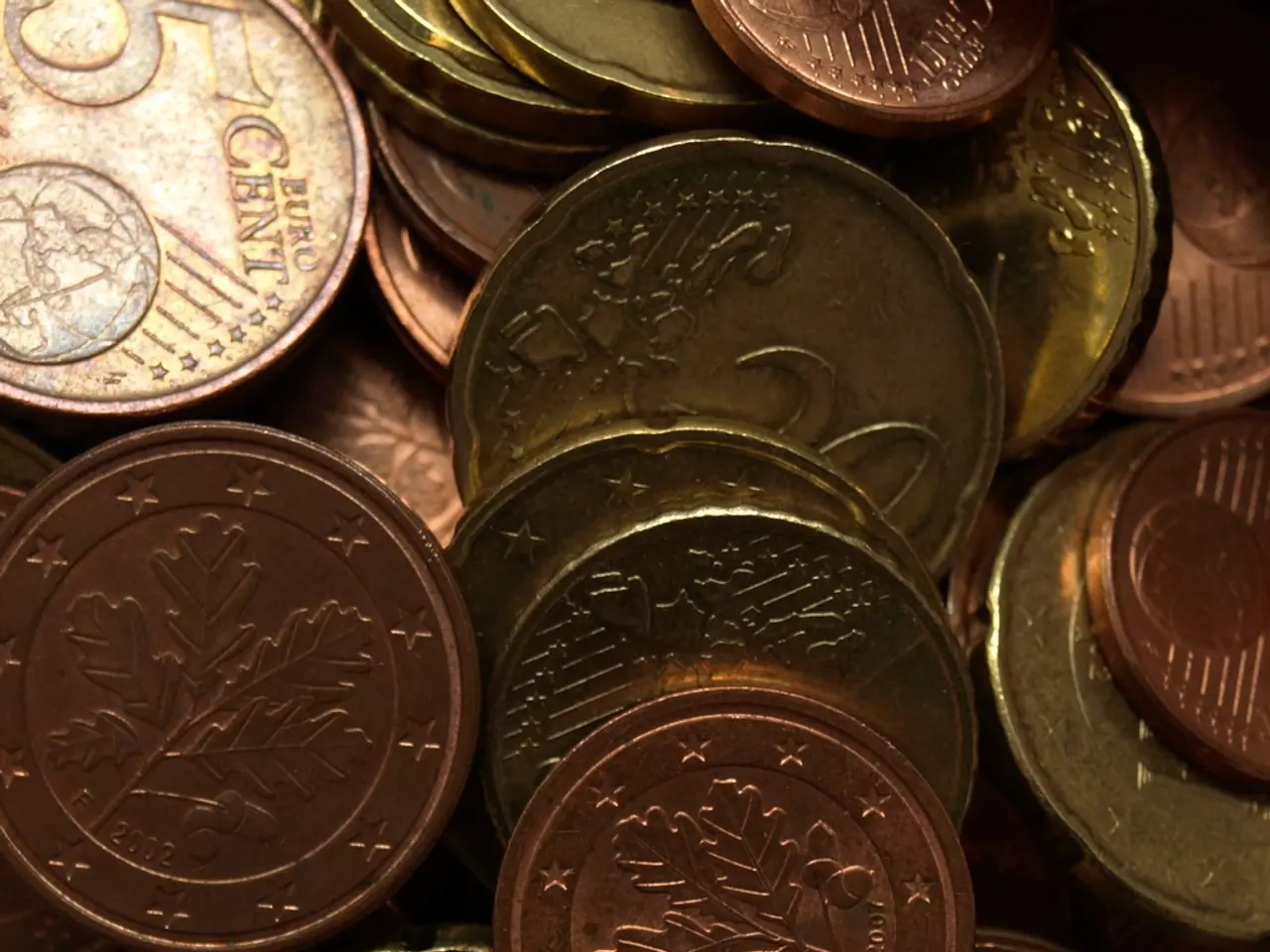Slowing economy prompts Finance Ministry's strategy to minimize fiscal deficit
In the face of a slow-growing economy, the Thai government is seeking innovative strategies to increase government revenue for the fiscal year 2025. The aim is to maintain fiscal stability while supporting the government's policy agenda.
One approach is to focus on high-value tourism and domestic travel. Thailand's strategy for tourism revenue in 2025 emphasises market segmentation, rapid response, and targeted digital marketing to attract higher-spending visitors. This includes promoting domestic tourism through programs like the “Thai Travel Co-Pay”, offering travel subsidies to encourage local travel and boost spending in sectors such as hotels, restaurants, and attractions.
Another key strategy is to improve tax collection and compliance. Despite underperformance in corporate income tax, vehicle tax, and VAT on imports, authorities are closely monitoring these collections and expect clearer indicators when mid-year corporate tax returns are filed. Boosting compliance and efficiently collecting taxes from these sources can help reduce the fiscal shortfall.
The government is also refocusing fiscal stimulus towards more targeted programs with better multiplier effects on economic activity and tax revenue. A large-scale digital wallet cash payment scheme worth over 185 billion baht was recently shelved because it did not generate a meaningful increase in consumer spending. Redirecting such funds towards more targeted programs might yield higher returns for government finances.
In light of the economy's growth forecast below 2%, the government is using its treasury reserves prudently to close fiscal gaps while working on revenue enhancement strategies. This may include borrowing carefully and managing expenditures to avoid excessive deficits.
The Ministry of Finance is also seeking to draw higher contributions from profitable state-owned enterprises. However, meeting the original tax revenue goals is increasingly difficult due to economic expansion falling short of expectations, lower-than-expected GDP growth, and a shift in corporate income tax filings to an online system with a later deadline.
As a result, the government collected a net revenue of 1.704 trillion baht during the first eight months of the 2025 fiscal year, falling short of projections by 12.75 billion baht. Key shortfalls came from lower-than-expected collections in automobile excise tax, corporate income tax, and value-added tax (VAT) from imports.
The Revenue Department, the main agency responsible for tax collection, is working intensively to maintain its collection performance. The Excise Department's revenue collection is 41.99 billion baht below its target (10.6%), while the Customs Department's revenue collection is 5.83 billion baht below its target (7.1%). The Revenue Department's revenue collection is 7.79 billion baht below its target (0.6%).
To offset the deficit, the government borrowed 777.12 billion baht. As of the end of May 2025, the treasury reserve stood at 338.54 billion baht. The original revenue estimates for FY2025 were based on a GDP growth rate of 4.5-5%.
In summary, Thailand’s approach for increasing government revenue amid economic slowdown involves leveraging high-value tourism and domestic travel incentives, improving tax collection efficiency, refocusing fiscal stimulus toward more impactful measures, and utilising treasury resources strategically to maintain fiscal stability. These integrated tactics reflect lessons from Thailand’s FY2025 experience, balancing revenue growth with economic realities.
To achieve fiscal stability in the face of a slow-growing economy for the fiscal year 2025, the Thai government is focusing on increasing revenue, both from the business sector and the broader economy. This includes enhancing tax collection efficiency, closely monitoring collections such as corporate income tax, vehicle tax, and VAT on imports, and boosting compliance to reduce the fiscal shortfall (Revenue Department, Excise Department, Customs Department). Furthermore, the government is seeking to generate additional revenue by refocusing fiscal stimulus towards more targeted programs with better multiplier effects on economic activity and tax revenue (Ministry of Finance, digital wallet cash payment scheme).




